You can choose to enjoy the book from start to finish or to dip into your favourite story straight away. Each story is entirely independent.
After every story a short timeline brings together the most important events in each persons life into one short report. The timeline is a useful tool for revision purposes.
Words which are above the required reading level are underlined the first time they appear in each story. All underlined words are defined in the glossary at the back of the book. Levels 1 and 2 take their definitions from the Collins COBUILD Essential English Dictionary and levels 3 and 4 from the Collins COBUILD Advanced English Dictionary.
To support both teachers and learners, additional materials are available online at www.collinselt.com/readers.
The Collins COBUILD Grading Scheme has been created using the most up-to-date language usage information available today. Each level is guided by a brand new comprehensive grammar and vocabulary framework, ensuring that the series will perfectly match readers abilities.
For more information on the Collins COBUILD Grading Scheme, including a full list of the grammar structures found at each level, go to www.collinselt.com/readers/gradingscheme.

18331896
the man who created the Nobel Prize

I was a chemist and a businessman. My greatest invention was dynamite, and I made a large fortune from selling it around the world. Then, one day in Paris, five words changed my life forever.

Although I was Swedish and was born in Stockholm, I grew up in St Petersburg in Russia. I arrived in the world in 1833, at a bad time for my family. My father had problems with his business and in the year that I was born, he lost all his money. He had a wife and three sons and he decided to start again in a new country. First he started a business in Finland, and then, when I was five, he moved to St Petersburg, leaving us behind in Stockholm.
My father was a great inventor, as well as a businessman. In northern Europe in those days, a lot of things were made out of wood. He invented clever new tools for making things out of wood, and created a successful business in his new Russian home. When I was nine years old, we were able to join him. My mother was very pleased that the family was back together, especially as she was going to have another baby. My brother, Emil, was born that year.
My fathers company was called Nobel & Sons. It grew into a large engineering company, making all kinds of machines, from steam engines to early central heating. The Industrial Revolution was happening in Europe at this time. Machines could now make most things that humans had made by hand for centuries.
We lived in a comfortable wooden house in St Petersburg, but we were not rich. My brothers and I were educated at home by private teachers. We studied history, science and literature . As well as Swedish, which we spoke at home, we learnt to speak Russian, French, German and English. This helped me a lot later on when I set up companies around the world.
One of my favourite subjects was literature. I especially admired the English poet Shelley, with his love of humanity and peace, and his exciting political ideas. I wrote poems myself, but I was never satisfied with them and I always burned them. I shared my fathers love of chemistry, and together we tried out new ideas. He also taught me how to be a good businessman.
When I was 17, in 1850, I left home to see some of the world. I spent a year in Paris, working with a famous French chemist. Then I went to the USA, where I studied the latest technology. Although I didnt go to university, I received an excellent education watching some of the worlds best scientists. The long journey home to Europe across the Atlantic gave me time to think about my future. What kind of business should I try? Over the last year I had become interested in explosives , which were very basic at that time.

My family was back in Sweden by now, and I joined them there. In 1863, I successfully created a new kind of explosive, using the chemical nitroglycerin, a kind of explosive liquid. Nobel & Sons was now based in Heleneborg in Sweden, where they tested new chemical recipes.
But one terrible day, an experiment went wrong. A huge explosion at the factory killed my younger brother Emil, and several of the company workers. It was a very sad day for the family, and we had a big decision to make. Should we sell the business and stop making explosives?
We decided to continue, but I moved away from Heleneborg. I set up my own factory near Hamburg in Germany, calling it Alfred Nobel & Company. There was more bad luck, however. An enormous explosion destroyed the factory, and many of my workers were injured.
The explosives were not stable . I had to change the recipe. Nitroglycerin is very difficult to work with, and this had caused the explosions. In one experiment I added a new ingredient. The new mixture was still dangerous, but it was more stable than before. I called it dynamite.


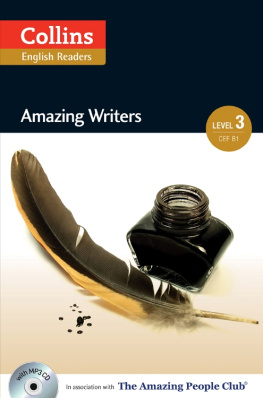
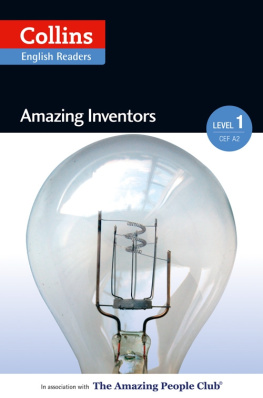
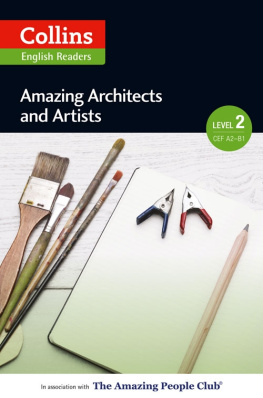
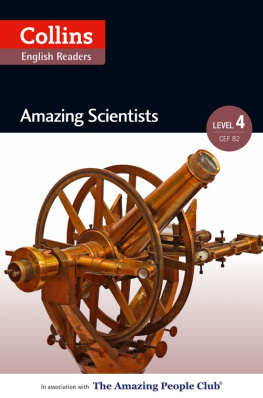
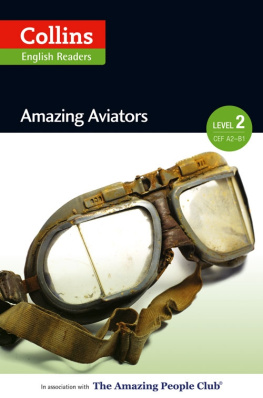
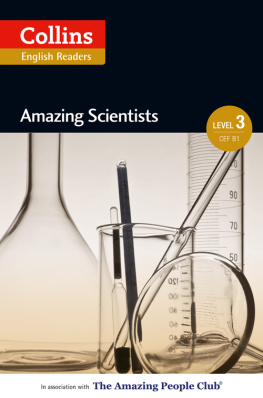
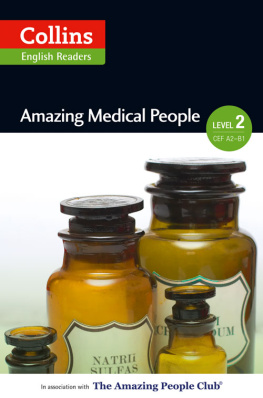


 C ONTENTS
C ONTENTS 


